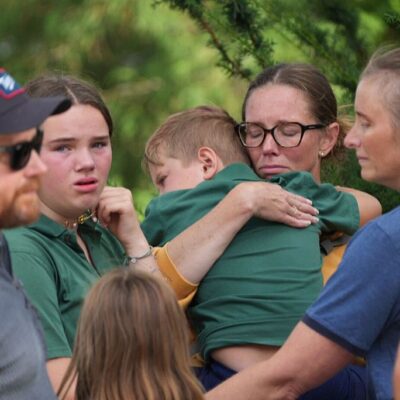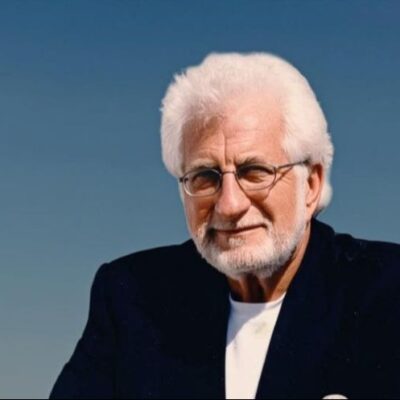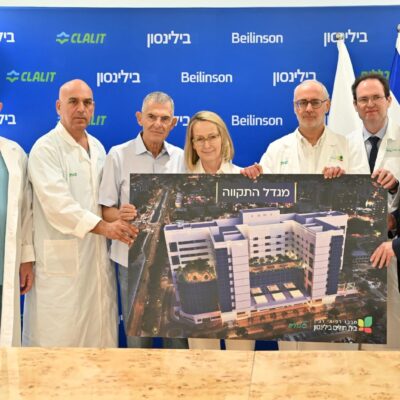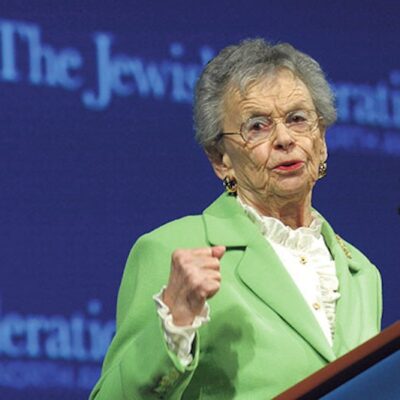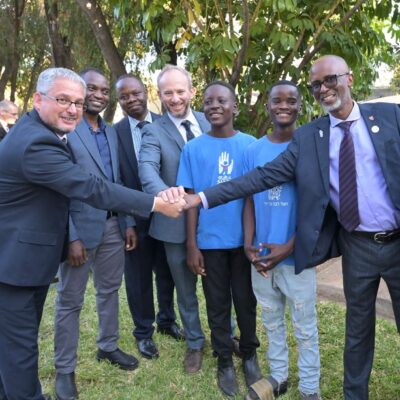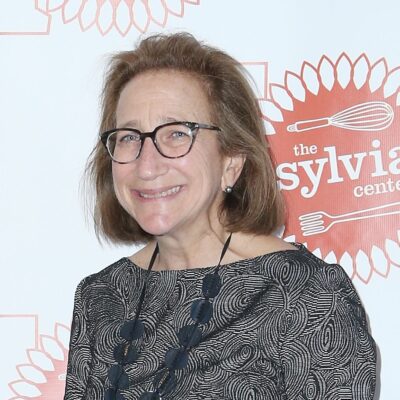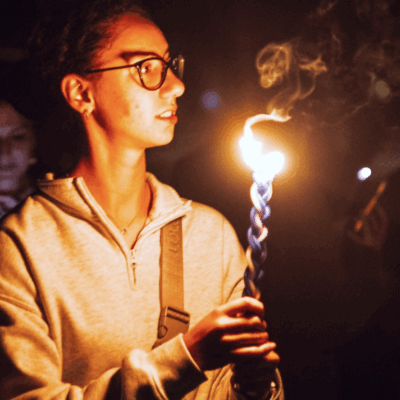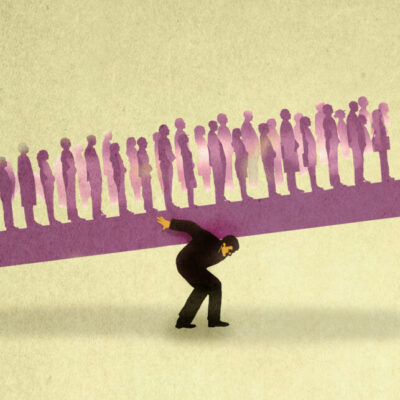WARTIME VISIT
JFNA leaders travel to Kyiv, meet Zelensky as group plans future Ukraine war giving
Federation officials make first trip to Ukrainian capital of any American Jewish organization with hope that the meetings will inform future donations, demonstrate solidarity with the country

Courtesy/Jewish Federations of North America/Anton Kulakowskiy
Members of the Jewish Federations of North America Mission to Ukraine meet with Ukrainian First Lady Zelenska in Kyiv, in June 2024.
On the second day of his visit to Kyiv last week, it occurred to Keith Shapiro that he wasn’t aware of other Jewish groups that have paid solidarity visits to the Ukrainian capital — among the cities most frequently bombarded by Russia since it invaded on Feb. 24, 2022.
“I asked the chief rabbi of Ukraine, ‘Who else from the [American] Jewish community has been here before us?’ And he pointed his finger at us and said ‘You’re it,’” Shapiro, a lay leader of Chicago’s federation, the Jewish United Fund of Metropolitan Chicago, told eJewishPhilanthropy fresh off a solidarity trip to Ukraine, which included two days in Kyiv, through Jewish Federations of North America.
The visit, held June 16-19, came as Israel’s war with Hamas and recovery from the trauma of the Oct. 7 massacre have become a central priority for Jewish federations and donors — but as a grinding war continues to rage on in Ukraine, where more than half a million people have been killed or seriously injured in two years.
Shapiro was among seven JFNA leaders from across the United States, including the group’s CEO, Eric Fingerhut, who were selected to meet with Ukrainian leaders and assess fundraising goals on the ground. A highlight, Shapiro said, was a discussion with Ukrainian President Volodymyr Zelensky, which Shapiro described as “incredibly warm.”
“He addressed us both as the leader of his country, but also as a fellow Jew,” Shapiro said. “There was a warmth and passion there for the Jewish people of Ukraine that was very perceptible. He is manifesting affection for the Jewish people of Ukraine in many ways that we saw, including the fact that during an existential war for his country, he is actively supporting the addition and improvement of the [Holocaust] memorial at Babyn Yar… in addition, both the city of Kyiv and federal government have actively supported the creation of Golda Meir Square,” Shapiro said, a tribute to Israel’s former prime minister, who was born in Kyiv.
Since the start of the war, JFNA has raised more than $100 million towards emergency operational costs, temporary housing and transportation for evacuations, security, humanitarian support, trauma and medical relief and immigration and absorption in Israel. Shapiro said that the visit reinforced the need to continue grants in all of these areas; and particularly for “an acute shortage of counselors, teachers and venues to host Jewish gatherings throughout the country.”
“The demand is huge now because people in those areas have left the country for Eastern Europe and Israel,” he said. “On the other side of the equation, the demand for involvement in Jewish life in Ukraine has increased drastically, people want to be a part of their culture at this time and learn more and be with other Jewish people for support. The demand is huge and there’s a pressing need to fill those gaps.”
While in Ukraine, the group visited several Jewish sites, including Babyn Yar, the Chabad Simcha School, the American Jewish Joint Distribution Committee’s Chesed center, a Jewish community center and the future location of Golda Meir Square. Participants met with leadership of the federation of Jewish communities in Ukraine, as well as with Olena Zelenska, the first lady of Ukraine, and Vitali Klitschko, the mayor of Kyiv.
“As lay leaders, we wanted to show that Ukraine has the support of the American people,”
Bobby Gibbs, a JFNA national young leadership co-chair, told eJP. “[The visit] helped me reshape how I tell the story of what’s happening in Ukraine,” Gibbs continued, noting that “on the surface, you could walk around Kyiv and not realize they are at war, but if you go a level below it’s really apparent, when you talk to individual people and realize a lot of buildings don’t have power and that overhead are planes that could send missiles in your direction. I’m bringing back a sense that the conflict does not feel like I expected. It feels like normalcy when in fact there is a massive amount of destruction and trauma… There’s a lack of day-to-day conversation that we have in America about what’s happening in Ukraine.”
“Our national leadership is more informed about what’s happening there and care about it more than the typical American,” Gibbs said. Still, even among JFNA’s young leadership, Gibbs said that “it’s easy to lose the top-of-mind nature of what’s happening in Ukraine… Efforts to reacknowledge the situation are really important.”
What stood out most to Gibbs, he said, was “the strength of the Ukrainian people, even teens.”
He reflected on needing to go into a bomb shelter at one point during the trip amid a Russian strike. “Within the shelter, where we were with a bunch of teens,” Gibbs recalled, “the students broke into the Ukrainian national anthem, and we matched with them the American national anthem and ‘Hatikvah.’”
The trip was Gibbs’ first time in Ukraine; he is already planning his next.
“I can’t wait to go to Kyiv after the war, between what they’ve done to memorialize the Holocaust, the way they celebrate Golda Meir and celebrate being Jewish and have created a culture where people are embracing Judaism again,” he said.

